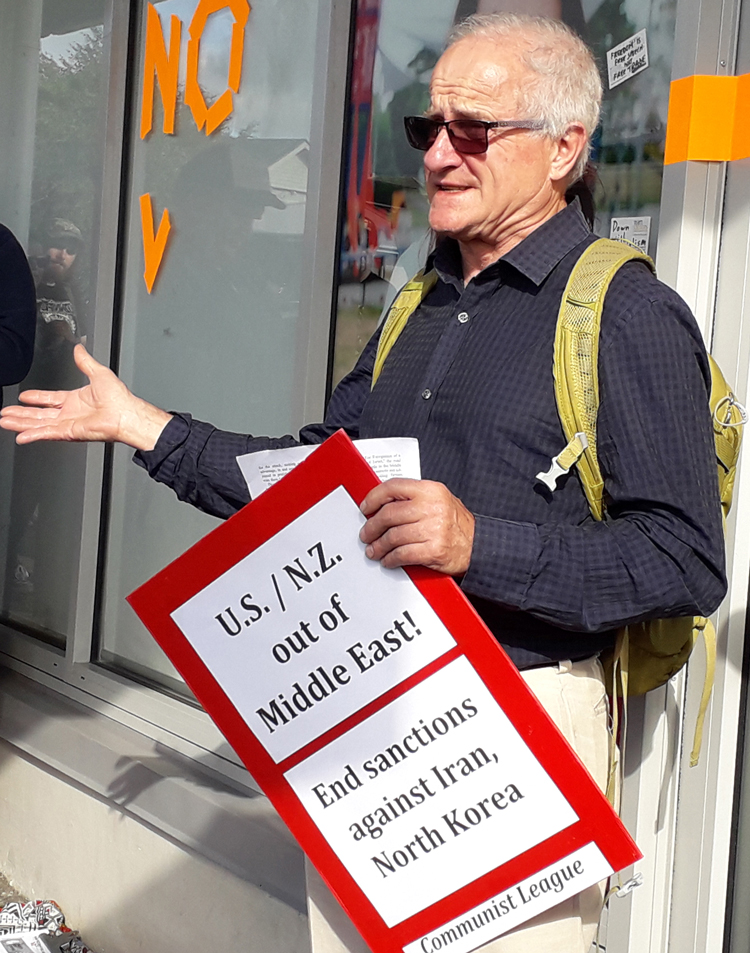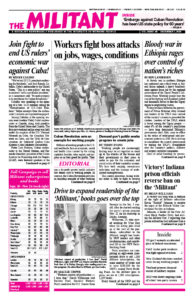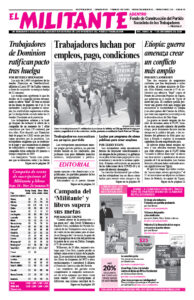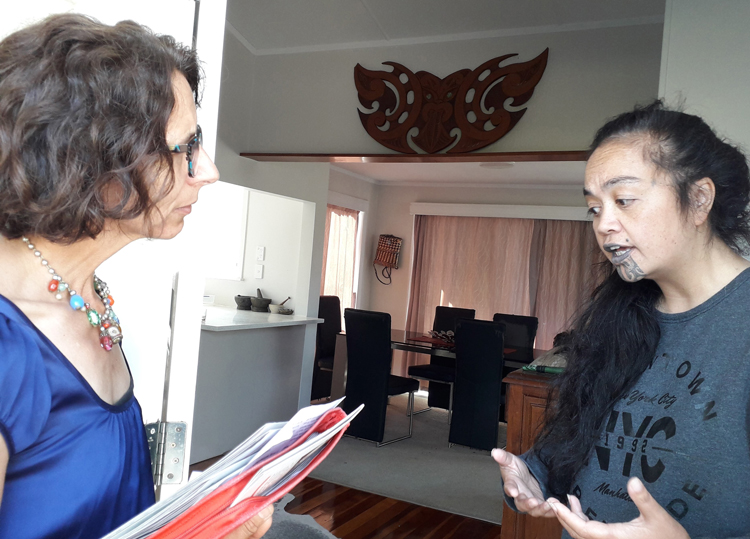AUCKLAND, New Zealand — As the Labour Party enters its second term in government here, having trounced the National Party opposition in parliamentary elections Oct. 17, working people in New Zealand face growing pressure on jobs, wages, housing and health care.
“To defend ourselves against attacks by employers and the government in this crisis, workers must act in our own name and interests,” Patrick Brown, Communist League candidate in the Panmure-Otahuhu electoral district in South Auckland, told an election meeting Oct. 10 organized by representatives of the Tongan community in Otahuhu.
“We think it’s important for workers to organize unions in every workplace,” Annalucia Vermunt, Communist League candidate in Manurewa, said when she took part in a panel of candidates interviewed online by the Manurewa Youth Council Oct. 7 that was posted on Facebook and YouTube. The unions, she said, need to build “a party that speaks and acts in the interests of working people.”
The capitalist economic crisis was exacerbated by the government’s severe anti-COVID restrictions — a lockdown that lasted from late March to mid-May, accompanied by continuing border closures that halted international tourism.
Prime Minister Jacinda Ardern and the Labour Party won a landslide in spite of the crisis bearing down on working people, taking credit for how their lockdowns had kept the number of COVID-19 cases and deaths low — 1,970 and 25, as of Nov. 12
The campaign of the opposition National Party, which has alternated with Labour as governing party over the past 70 years, was undermined by an ongoing internal crisis. Judith Collins is the party’s third leader so far this year. But this landslide vote only masks the depth of the crisis workers face.
Crisis hits workers, migrants
The March-May lockdown saw public transport ridership plummet by over 95% in the capital Wellington and here in Auckland, the country’s largest city. But the crisis hit workers unevenly. In many industrial districts and retail deemed “essential,” work carried on. Agricultural production continued to meet ongoing demand in Asian markets for dairy, meat and other products.

Bosses dipped into New Zealand 13 billion dollar ($9 billion) special government-funded wage subsidies to keep idled workers on their books. The government also created a 12-week “COVID benefit” for those who lost jobs between March and October, set at double the pittance of the regular unemployment benefit.
These wage subsidies have largely run out. Some 23,000 workers have seen COVID relief end without finding a job.
In a series of protest pickets in June, E Tu and First Union members at Temperzone in Mangere, South Auckland, protested company bosses using the wage subsidy scheme for their own ends. The bosses held off applying for the subsidy, compelling workers to take annual leave payments to get by. When the bosses eventually applied, they ignored workers’ demands to be repaid, and slashed 65 jobs.
The ever-rising cost of housing weighs on working people. One Auckland church-based “emergency housing provider” told Radio New Zealand that families he deals with often spend from 60% to 80% of their household income on rent. And the waiting list for government-run rentals has more than tripled in less than three years to almost 20,000.
Migrant workers have been especially hard hit. More than 7,000 workers in the South Island resort town of Queenstown applied for local welfare assistance between May and July, the big majority unemployed migrant workers laid off from tourism jobs.
Tens of thousands of such workers nationwide, who the government deemed ineligible for welfare assistance, were forced to rely on handouts from charities and local governments, or on the generosity of local residents.
Almost 10% of people living in New Zealand are on a migrant visa, in second-class status with less rights.
The pandemic also exposed the decline in the public health system over several decades. “As many as 430,000 children and adults in New Zealand [have] an unmet need for hospital care,” the Association of Salaried Medical Professionals reported before the pandemic hit.
Some staff working within the government’s Managed Isolation and Quarantine system — which uses idled tourist hotels — have contracted the virus from people quarantined there. “It’s alarming that our members working in MIQ still do not have consistent access to N95 masks,” said New Zealand Nurses Organisation spokesperson Glenda Alexander Nov. 13.
“We need universal, government-guaranteed, cradle-to-grave health care available to all,” the Communist League election campaign platform said.
Brown, Vermunt, and their supporters took their campaign into working-class communities in Auckland and beyond, knocking on doors and talking about the need to fight for jobs, build unions and build their own working-class party. That’s the road, they said, to resist efforts by the bosses to make our class pay for the crisis of capitalism, and to unite and build a movement to overthrow this dog-eat-dog capitalist system.


